The search is thorough. A few weeks ago weapons and uniforms were found in a vehicle. Beside the road, suitcases are unloaded from trucks overloaded with jerry cans and mattresses. A pickup carrying Chadian forces roars by. A few hundred metres away about 50 French military vehicles and 200 men are waiting, headed for Bangui.
Sido, a village on the Chad side of the border, is caught up in the turmoil in the Central African Republic. Its twin, across the border, is still controlled by Muslim Seleka rebels. It is a key crossing point between the two countries. Since conflict started in December some 35,000 people – mostly Muslims fleeing the violent reprisals of anti-Balaka Christian militia – have arrived here, some on foot but mostly in convoys escorted by the Chadian army. More than half of them have carried on into Chad, but 14,000 have stayed put. They are destitute and live in makeshift shacks.
Eight Chadian army convoys have arrived here from Bangui since late December. "The soldiers went to fetch anyone who was in danger, not just Chadians," says the deputy prefect Bouba Lawane.
They endured terrible trials to reach here. "Our convoy was attacked three times by Christian militia," says Kaltouma Bello, sitting under a tree with 20 other refugees. They had arrived a couple of days earlier with 3,000 others. This young mother left her home in Yaloke, and hid for three weeks in the bush after her village was attacked by Christian militia. French soldiers rescued her and she made it to Bangui. "When the trucks leave, you clamber on as best you can," she adds. She has no idea what happened to her husband and son. Ramatou Moussa has been here for a month. The Christian militia attacked her home in Bangui and butchered her husband and mother with machetes. She escaped with her five children.
Though they are safe in Chad, these women must now find food. They collect firewood and sell it in the market for a few cents. "How are we going to feed the kids?", one of them asks.
After weeks on the road the refugees are exhausted. In a medical centre set up by Médécins Sans Frontières (MSF) a woman, 26, is stretched out. After three days of diarrhoea and vomiting she is very weak. The doctors put up a drip to rehydrate her, but it is too late.
Fewer than 300 tents have been distributed to house the refugees in Sido. There are 20 latrines for 14,000 people, four taps and not one shower. Food is short. The World Food Programme has only organised two handouts. Hamid, the local representative of the Chadian welfare ministry, is clearly worried. He has 100 sacks of rice to distribute. He needs 20 times more. "A minimum service was provided to begin with, but there hasn't been enough food since 20 January," says Sarah Château, head of the MSF mission in Chad.
Sido is one just town in Chad. In the past two months the country has accepted 70,000 refugees.
This article appeared in Guardian Weekly, which incorporates material from Le Monde
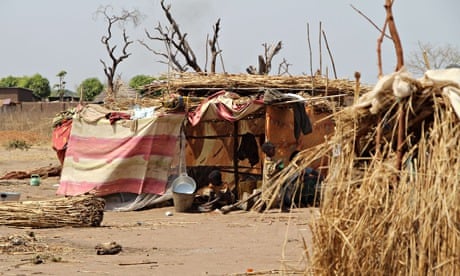
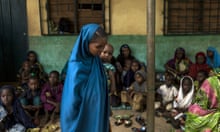
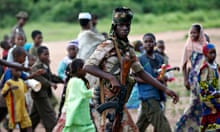
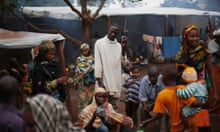
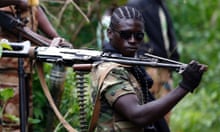

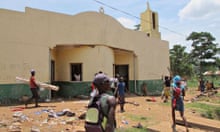

Comments (…)
Sign in or create your Guardian account to join the discussion